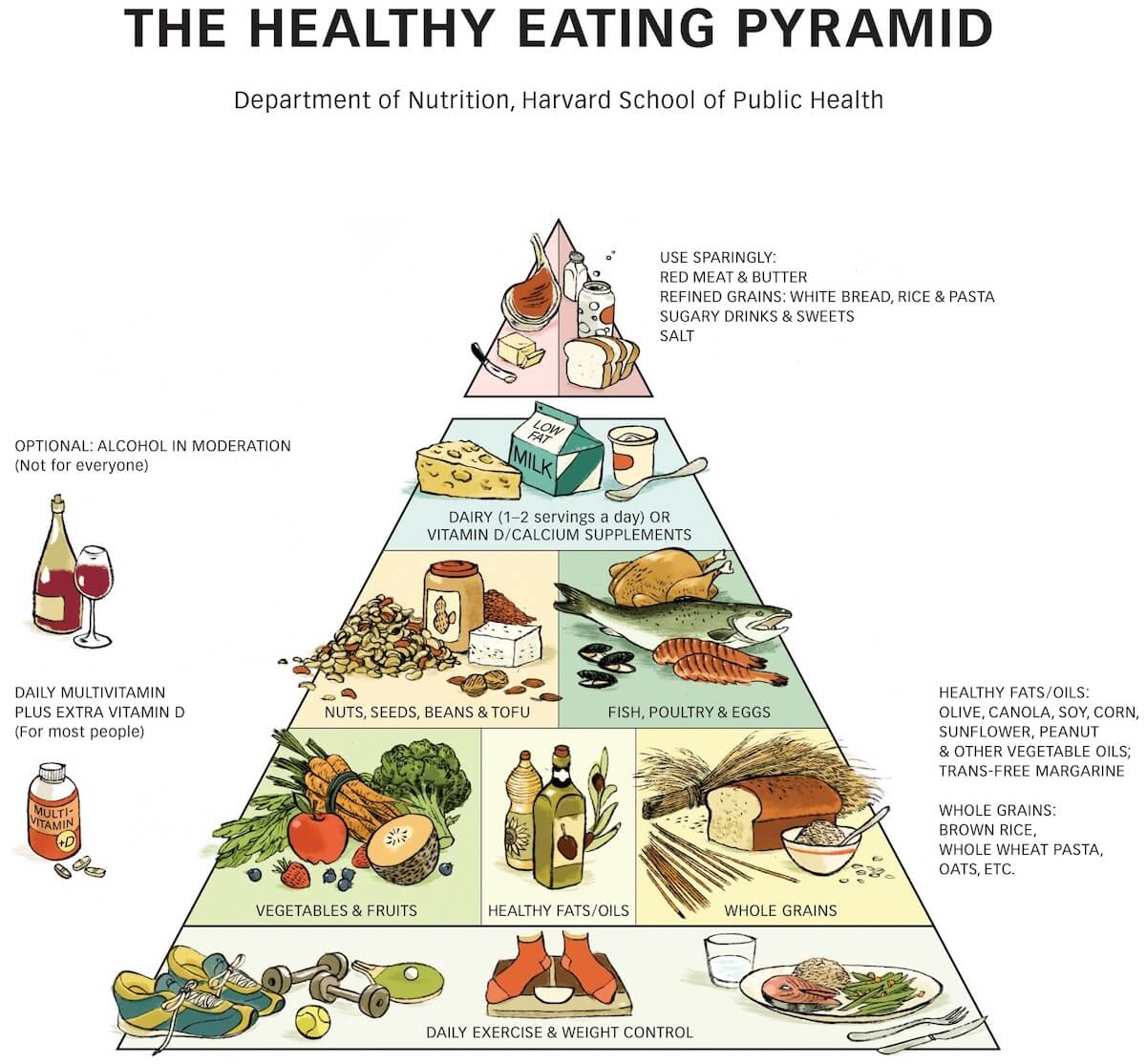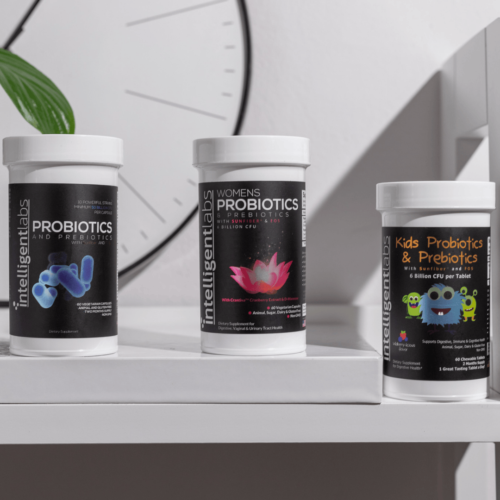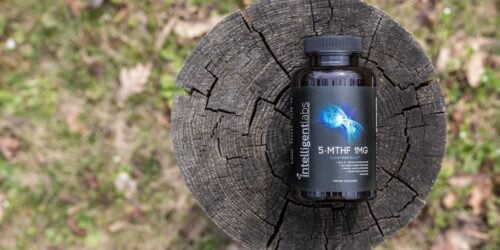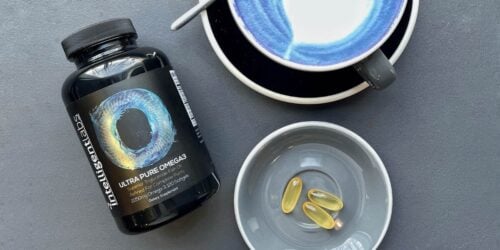Your immune system is your body’s first line of defense against pathogens like germs, viruses, and bacteria. A strong immune system can help protect you from infections and diseases, keeping you healthy and active. In this article, we’ll explore how to boost your immune system naturally and with supplements, providing detailed insights and practical tips.
Table of Contents
Why Boost Your Immune System?
A robust immune system is crucial for maintaining good health. It helps your body fight off infections and diseases, ensuring you stay healthy and active. There are various ways to boost your immune system, including natural methods and supplements. By understanding and implementing these strategies, you can enhance your body’s ability to ward off illnesses.
Natural Ways To Boost Your Immune System
Tip #1: Proper Nutrition
Eating a healthy, balanced diet is essential for a strong immune system. (1) A diet rich in fruits, vegetables, lean proteins, and whole grains provides the vitamins, minerals, and nutrients your body needs to function properly.
- Fruits and Vegetables: These are packed with essential vitamins and antioxidants. Citrus fruits like oranges and grapefruits are high in Vitamin C, while leafy greens like spinach and kale are rich in Vitamin A and iron.
- Lean Proteins: Foods like chicken, fish, and beans provide the amino acids necessary for building and repairing tissues, including those of the immune system.
- Whole Grains: Whole grains like brown rice, quinoa, and oats are rich in fiber, which supports gut health and, in turn, immune function.
- Hydration: Drinking plenty of water is crucial for overall health. It helps in the production of lymph, which carries white blood cells and other immune system cells through the body.

Image credit: Copyright © 2008. For more information about The Healthy Eating Pyramid, please see The Nutrition Source, Department of Nutrition, Harvard T.H. Chan School of Public Health, www.thenutritionsource.org, and Eat, Drink, and Be Healthy, by Walter C. Willett, M.D., and Patrick J. Skerrett (2005), Free Press/Simon & Schuster Inc.
Tip #2: Quality Sleep
Getting enough quality sleep is crucial for your immune system. During sleep, your body repairs and regenerates itself, and your immune system releases proteins called cytokines, which help promote sleep and fight infections. (2)
- Sleep Stages: Deep sleep is particularly important for immune function. During this stage, your body produces cytokines, which help promote sleep and fight infections.
- Sleep Tips: Aim for at least 7 hours of sleep per night. Maintain a consistent sleep schedule, create a relaxing bedtime routine, and optimize your sleep environment by keeping it cool, dark and quiet.
- Avoid Electronics: Put your electronic devices out of arm’s reach to avoid the temptation of scrolling through social media late at night.

Related article: Which Magnesium Is Best For Sleep?
Tip #3: Minimize stress
Chronic stress can weaken your immune system, making you more susceptible to infections and diseases. (3) Finding ways to manage stress is essential for maintaining a strong immune system.
- Stress Management Techniques: Practices like mindfulness meditation, deep breathing exercises, yoga, and spending time in nature can help reduce stress levels.
- Social Support: Talking to friends, family, or a therapist can provide emotional support and help you manage stress more effectively.
- Humour: Having a sense of humour can help you turn negative situations into positive ones, reducing stress and improving your overall well-being.
Tip #4: Be more physically active
Regular physical activity can help boost your immune system by promoting good circulation, which allows immune cells to move through the body more effectively. (4)
- Types of Exercise: Aim for a mix of aerobic activities (like walking, cycling, or swimming), strength training, and flexibility exercises.
- Incorporate Activity: Find ways to incorporate physical activity into your daily life, such as taking the stairs instead of the elevator, walking or biking to work, and participating in recreational sports.
- Moderation: While regular exercise is beneficial, excessive exercise can weaken the immune system. (5) Listen to your body and avoid overdoing it. Start light and slow (read our article on how to exercise at home).

An inactive lifestyle brings about a ton of health consequences, including premature death. Very little calories are burned, so all the extra calories get stored in the body as fat. Metabolism slows down. Hormonal imbalance and chronic inflammation soon develop. The extra weight puts a strain on lightly used muscles and bones. All these contribute to a weaker immune system.
Tip #5: Practice Good Hygiene
Good hygiene practices can help prevent infections and support your immune system by reducing the number of pathogens you come into contact with.
- Hand Washing: Wash your hands regularly with soap and water, especially before and after handling food, using the toilet, and touching your face.
- Covering Coughs and Sneezes: Use a tissue or your elbow to cover your mouth and nose when coughing or sneezing to prevent the spread of germs.
- Clean Living Spaces: Keep your living spaces clean and disinfected, especially high-touch surfaces like doorknobs, light switches, and countertops.

Tip #6: Stick to a routine
Establishing a daily routine can help reduce stress and improve your overall health by providing structure and predictability.
- Balanced Routine: Create a routine that includes time for work, exercise, relaxation, and sleep. Make sure to include healthy habits like eating nutritious meals and staying hydrated.
- Consistency: Stick to your routine as consistently as possible. Gradually incorporate new habits into your routine to make them a natural part of your daily life.
- Flexibility: While consistency is important, be flexible and adjust your routine as needed to accommodate changes in your schedule or priorities.
Supplements To Boost Your Immune System
Vitamin C
Vitamin C is a powerful antioxidant that supports immune function by stimulating the production of white blood cells and helping them function more effectively.
- Food Sources: Citrus fruits, strawberries, bell peppers, and broccoli are all rich in Vitamin C.
- Supplements: Vitamin C supplements are widely available and can help ensure you meet the recommended daily intake of 75 mg for women and 90 mg for men. However, excessive intake can lead to side effects like diarrhea and nausea.
Probiotics

Probiotics support gut health, which is closely linked to immune function. A healthy gut microbiome helps maintain a strong immune system by preventing harmful pathogens from entering the body and stimulating the production of immune cells.
- Food Sources: Fermented foods like yogurt, kefir, kimchi, and sauerkraut are natural sources of probiotics.
- Supplements: Probiotic supplements can provide a higher concentration of beneficial bacteria. Look for a high-quality supplement with a variety of strains and a high CFU (colony-forming units) count.
Check out our Probiotics and Prebiotics range
Vitamin D
Vitamin D, known as the “sunshine vitamin”, is crucial for immune function and bone health. It helps regulate the immune system and supports the production of immune cells.
- Food Sources: Fatty fish like salmon and mackerel, egg yolks, and fortified foods like milk and cereal are good sources of Vitamin D.
- Supplements: Vitamin D supplements can be beneficial, especially for those with limited sun exposure. The recommended daily intake varies, but excessive intake can lead to side effects like nausea, vomiting and weakness.
- Sun Exposure: Spending time in the sun can help your body produce Vitamin D. However, excessive sun exposure can increase the risk of skin cancer, so it’s important to balance sun exposure with protection.
Zinc
Zinc is essential for immune function, wound healing, and cell division. It plays a crucial role in the development and function of immune cells.
- Food Sources: Meat, eggs, nuts, and whole grains are all rich in zinc.
- Supplements: Zinc supplements can help if you’re deficient, but excessive intake can lead to side effects like nausea, vomiting and diarrhea. The recommended daily intake is 8 mg for women and 11 mg for men.
Folate/Folic Acid

Folate is important for immune function and overall health. It plays a crucial role in the production and maintenance of new cells, including immune cells.
- Food Sources: Leafy greens, beans, and fruits are all rich in folate
- Supplements: Folic acid supplements can be beneficial, especially for those with the MTHFR gene mutation. Look for a supplement with the 5-MTHF form of folic acid to ensure your body can effectively use it. The recommended daily intake is 400 mcg for adults.
Discover our 5-MTHF/Folic Acid supplements
Vitamin B12
Vitamin B12 is crucial for red blood cell formation and nerve function. It also supports the production of immune cells and helps regulate the immune system.
- Food Sources: Meat, fish, dairy products, and fortified foods are rich in Vitamin B12
- Supplements: Vitamin B12 supplements can be helpful for those who don’t consume enough B12-rich foods. The recommended daily intake is 2.4 mcg for adults. Excessive intake is generally not harmful, as the body excretes excess Vitamin B12.
Vitamin B6
Vitamin B6 supports immune function and helps with protein metabolism. It plays a crucial role in the production of immune cells and the regulation of the immune system.
- Food Sources: Chicken, fish, potatoes, and bananas are all B6-rich foods.
- Supplements: Vitamin B6 supplements can be useful if you have an identified deficiency. The recommended daily intake is 1.3 mcg for adults. Beware of excessive intake, as it can lead to side effects like nerve damage and skin lesions.
Omega-3

Omega-3 fatty acids have anti-inflammatory properties and support immune function. They help regulate the immune system and reduce inflammation, which can improve overall health.
- Food Sources: Fatty fish like salmon and mackerel, flaxseeds, and walnuts are rich in Omega-3 fatty acids.
- Supplements: Look for a sustainably sourced, high-quality supplement with a high EPA and DHA content, preferably in the optimal ratio (3:2 EPA:DHA).
Choose our Ultra Pure Omega-3 Fish Oil Capsules
Vitamin A
Vitamin A is essential for eye health and immune function. It supports the production of immune cells and helps regulate the immune system.
- Food Sources: Vitamin A-rich foods include sweet potatoes, carrots, spinach, and broccoli.
- Supplements: Vitamin A supplements can help if you’re not getting enough from your diet. The recommended intake is 700 mcg for women and 900 mcg for men. Excessive intake can be toxic, so it’s important to consult with a healthcare professional before taking any supplements.
Iron
Iron is essential for blood production and immune function. It plays a crucial role in the production of haemoglobin, which carries oxygen to cells, including immune cells.
- Food Sources: Meat, beans, and fortified foods
- Supplements: There is a wide variety of iron supplements in the market, but excessive intake can be harmful. The recommended daily intake is 8 mg for men and 18 mg for women. It’s important to consult with a healthcare professional before supplementing with iron.
Selenium
Selenium is a trace mineral that supports immune function and thyroid health. It plays a crucial role in the production of immune cells and helps regulate the immune system.
- Food Sources: Nuts, seeds, and seafood are selenium-rich foods.
- Supplements: If you have a selenium deficiency, supplementing can be helpful. The recommended daily intake is 55 mcg for adults. Similarly to vitamin A, excessive selenium intake can be toxic – always consult with a healthcare professional before starting selenium supplements.
Copper
Copper is important for immune function and iron transport. It plays a crucial role in the production of immune cells and helps regulate the immune system.
- Food Sources: Copper-rich foods include leafy greens, nuts, seeds, and organ meats.
- Supplements: Our bodies can’t produce copper, so supplements are useful if you don’t get enough from your diet. The recommended daily intake is 900 mcg for adults.
Conclusion
Boosting your immune system involves a combination of natural methods and supplements. By eating a healthy diet, getting enough sleep, managing stress, staying active, practicing good hygiene, and sticking to a routine, you can support your immune system naturally. Supplements can also play a role, but it’s important to consult with a healthcare professional before starting any new supplement regimen to ensure it’s safe and appropriate for your individual needs.
Share these tips with your family and friends to help them boost their immune systems as well! By taking a holistic approach to immune health, you can enhance your body’s ability to fight off infections and diseases, ensuring you stay healthy and active.
💬 Something on your mind? Share your thoughts in the comments. We love hearing from curious minds.
📩 And while you’re here, join our newsletter for more smart stuff (and secret perks)!
References
(1) Alwarawrah, Yazan et al. “Changes in Nutritional Status Impact Immune Cell Metabolism and Function.” Frontiers in immunology vol. 9 1055. 16 May. 2018, doi:10.3389/fimmu.2018.01055
(2) Stoyan Dimitrov, Tanja Lange, Cécile Gouttefangeas, Anja T.R. Jensen, Michael Szczepanski, Jannik Lehnnolz, Surjo Soekadar, Hans-Georg Rammensee, Jan Born, Luciana Besedovsky; Gαs-coupled receptor signaling and sleep regulate integrin activation of human antigen-specific T cells. J Exp Med 4 March 2019; 216 (3): 517–526. doi: https://doi.org/10.1084/jem.20181169
(3) Segerstrom, Suzanne C, and Gregory E Miller. “Psychological stress and the human immune system: a meta-analytic study of 30 years of inquiry.” Psychological bulletin vol. 130,4 (2004): 601-30. doi:10.1037/0033-2909.130.4.601
(4) Simpson, Richard J, and Keith Guy. “Coupling aging immunity with a sedentary lifestyle: has the damage already been done?–a mini-review.” Gerontology vol. 56,5 (2010): 449-58. doi:10.1159/000270905
(5) Simpson, Richard J et al. “Can exercise affect immune function to increase susceptibility to infection?.” Exercise immunology review vol. 26 (2020): 8-22.





